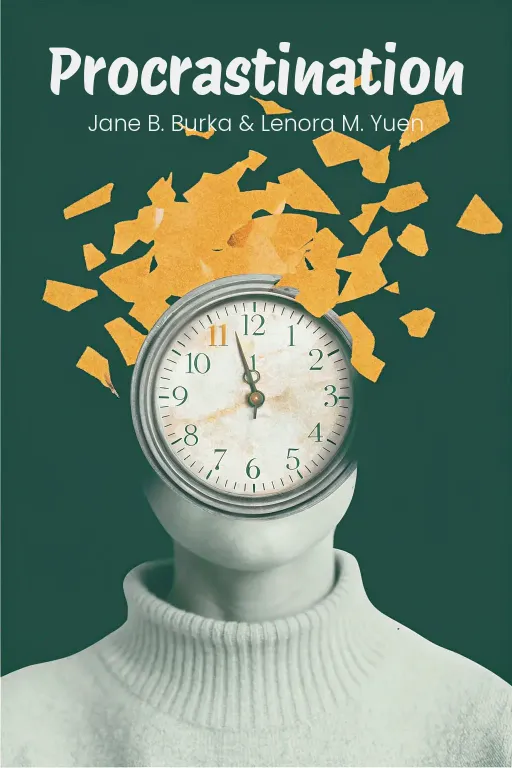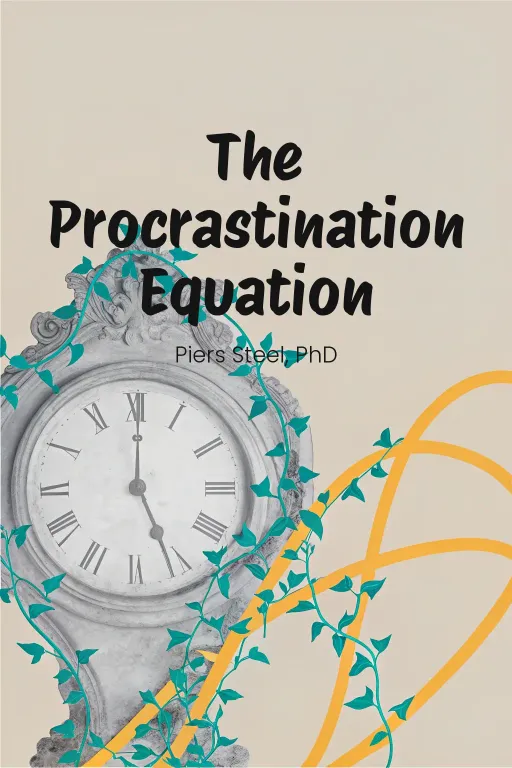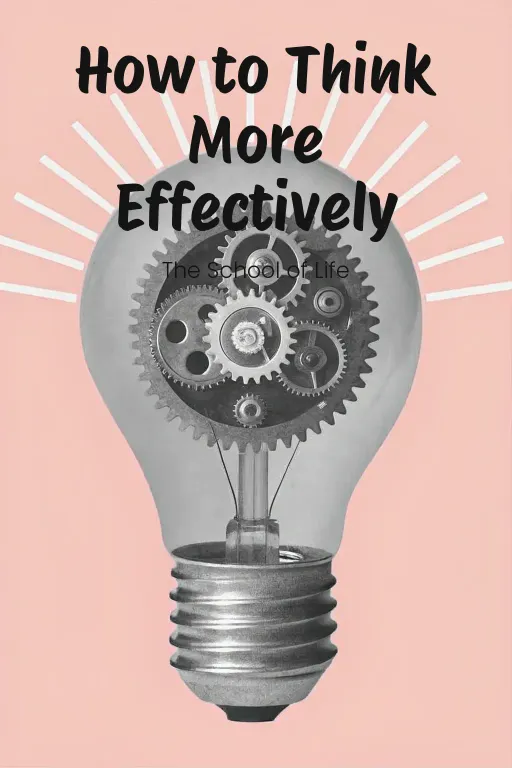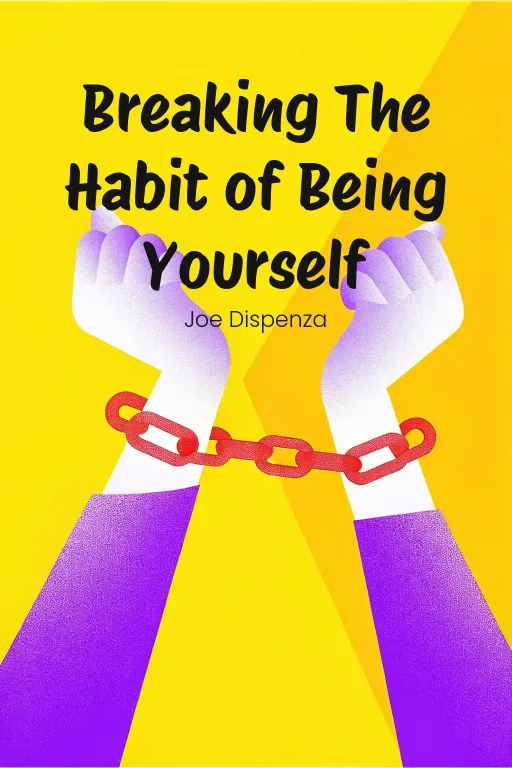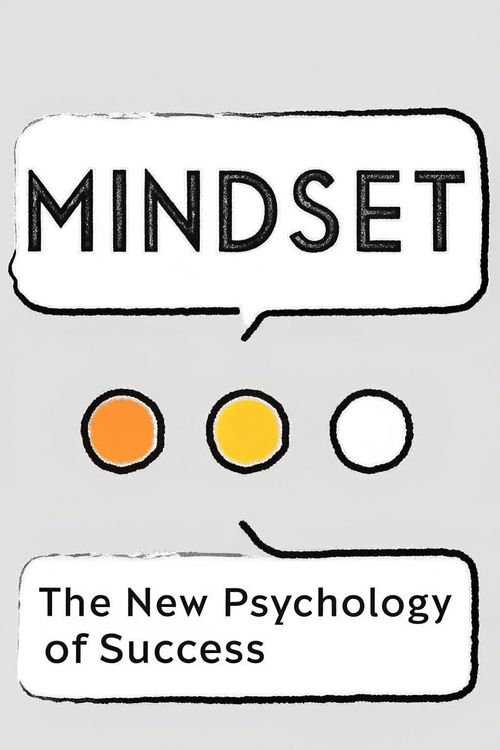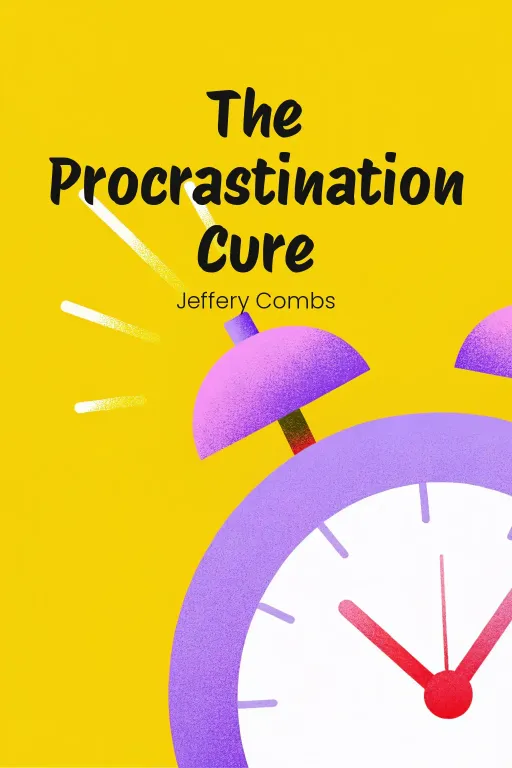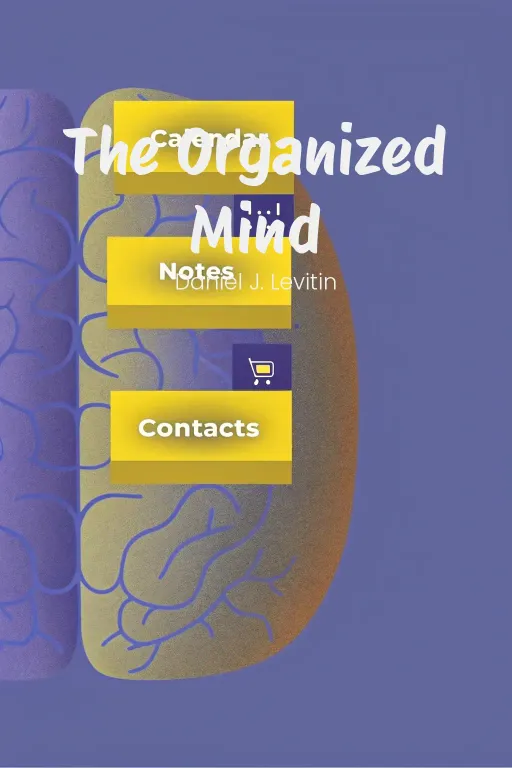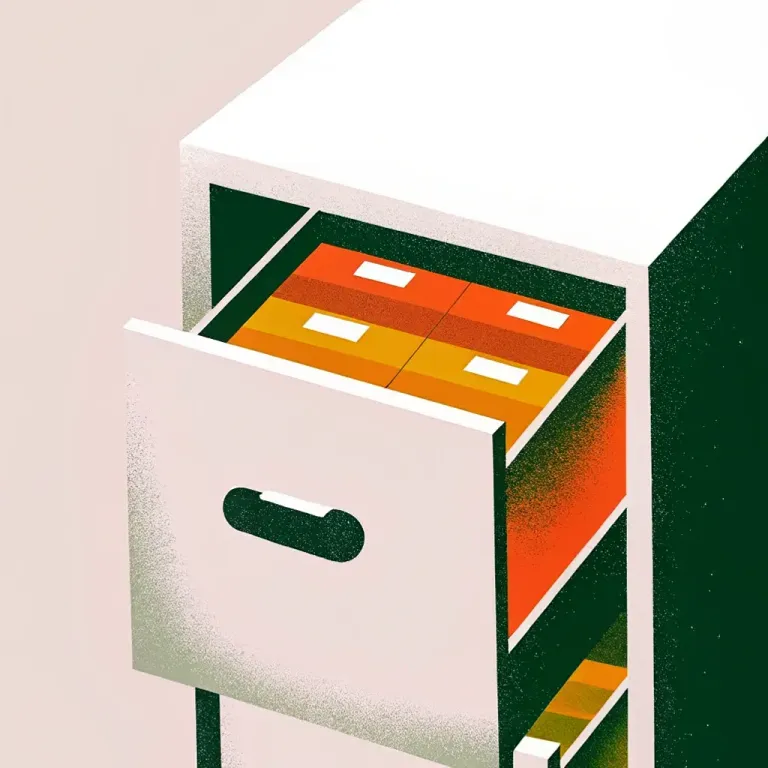
Brain Bliss: Clear Clutter, Find Focus
Podcast by Beta You with Alex and Michelle
Thinking Straight in the Age of Information Overload
Brain Bliss: Clear Clutter, Find Focus
Part 1
Alex: Okay, real talk—does life feel like a never-ending barrage of emails, to-do lists that just keep growing, and a million things fighting for your attention? If your brain feels constantly overwhelmed, trust me, you're definitely not alone. Michelle: Seriously. My brain feels like Grand Central Station at rush hour, packed with notifications, half-baked ideas, and useless trivia I didn’t even know I knew. Alex: That mental gridlock is exactly what Daniel J. Levitin addresses in "The Organized Mind." He explores how our brains, which evolved for a much simpler world, are now struggling to cope with the sheer volume of information and decisions we face daily. The book mixes neuroscience, practical tips, and some really interesting studies to show us how to clear the mental clutter and live a more organized life. Michelle: So, a brain de-cluttering masterclass? Sign me up! But is this, like, a "Tidying Up with Marie Kondo" for our minds? Alex: Something like that! We're going to break it down into three parts. First, we’ll look at why our brains struggle so much with today’s constant information overload. Think of it as understanding why your brain feels like that overflowing inbox. Second, we’ll explore how to declutter and streamline your surroundings – your workspace, your schedule, even your digital life. And third, we’ll dive into how to make better decisions and adapt ethically and effectively to an ever-changing world. It's all about clearing the brain fog and sharpening your focus, with science backing us up. Michelle: Alright, Alex, sounds ambitious enough. Let's see if we can actually make some sense of the chaos.
Cognitive Overload and Its Impact
Part 2
Alex: Okay, so picking up where we left off, let's dive into the core of the problem: cognitive overload and its impact. This is really foundational because it gets to the heart of why we're all feeling so frazzled—our brains are just bombarded with information daily. And to really understand why that's happening, we need to understand how our brain actually processes attention and information in the first place. Michelle: Right, and if I remember correctly, that all comes down to the prefrontal cortex. That's the brain's executive assistant, right? The one that decides what gets attention and what gets ignored? Alex: Exactly. The prefrontal cortex handles attention, decision-making, and prioritizing. But here's the tricky part: it has limited capacity. Neuroscientists estimate around 120 bits of information per second. I mean, imagine trying to juggle two conversations – you're practically maxed out already. Now add in emails, texts, social media, work deadlines... it's just cognitive chaos. Michelle: So, our brains are just dropping calls left and right because we're overwhelming the system. But this can't just be a modern problem, right? I mean, distractions have always existed. What's different now? Alex: True, distractions are nothing new. But the sheer volume, the variety, and the speed of information these days are pretty staggering. Levitin points out that back in 1976, an average supermarket had about 9,000 unique items. Today? Over 40,000. Even something as simple as picking cereal or toothpaste has become completely overwhelming. Michelle: Wow, so going grocery shopping is basically a decision-making workout now. No wonder I freeze up in the cereal aisle! Too many options. That's decision fatigue kicking in, isn't it? Alex: Bingo. Decision fatigue is a very real cognitive tax our brains pay after making too many decisions, whether they're big or small. And the quality of your decisions starts to decline because your mental energy is used up. Levitin talks about research from the judicial system – parole hearings, for example, have higher favorable rulings early in the day or right after breaks. As decision fatigue sets in, judges start defaulting to the safer choices, like denying parole altogether. Michelle: That's actually mind-blowing. So even something as critical as a parole ruling can be influenced by something as simple as how many decisions someone's already made? That is... sobering. Alex: Definitely underscores how fragile our cognitive resources are. Choosing between two identical brands of laundry detergent actually drains energy for those later, bigger tasks. That's why we sometimes just "satisfice" – we choose what's good enough instead of stressing over the perfect decision. Michelle: Ah, the "good enough" strategy. So, Steve Jobs wearing the same black turtleneck every day wasn't just a fashion choice. It was about saving his brain from wasting energy on wardrobe decisions. Alex: Exactly! And that freed up mental energy for the stuff that really mattered. But speaking of wasting brainpower, multitasking is another trap that people fall into when they're dealing with cognitive overload. People think it boosts productivity, but it really does the opposite. Michelle: Let me guess – it's not real multitasking, it’s this "task-switching" thing I've been hearing about. Like flipping between browser tabs in your mind, and losing focus each time… and probably forgetting why you opened the tab in the first place! Alex: Exactly. Task-switching creates what neuroscientists call "switch costs," and those little delays add up. Think about writing an email, answering a colleague's question, and checking your phone all in a few minutes. You're losing mental efficiency and accuracy every single time you switch between those tasks. Michelle: So instead of doing three tasks poorly, I should just buckle down, finish one, and then move on. But, come on, Alex, isn't there some secret training or brain hack that can make us actually better at juggling? Alex: Unfortunately, no. Our brain's just hardwired this way. Focus is finite, and dividing it always takes a toll. A classic example is the "Invisible Gorilla" experiment. People were counting basketball passes between players, and half of them didn't even notice a guy in a gorilla suit walking right through the scene. Michelle: Oh right – the classic inattentional blindness. You're so focused on one thing, you completely miss the obvious. But that's kind of terrifying, isn't it? What if I'm so distracted that I miss something critical… like, say, a metaphorical gorilla stomping all over my daily life? Alex: It is unsettling, and that's why awareness is key. We need to recognize our own limitations and create rhythms that work with how our brains are designed, not against them. And let's be frank, the modern digital age just makes all of this even harder. Our devices are always screaming for attention – notifications, emails, alerts. They wreak havoc with our focus. Michelle: Oh, 100%. My phone is like a toddler that just shouts “Look at me!” all day. But there have to be practical ways to push back, right? I'm not throwing my phone away. Alex: Absolutely. Techniques, like batching tasks – grouping similar things together and scheduling time for them – can help cut down on constant context-switching. Disabling non-urgent notifications is another game-changer. And setting aside phone-free blocks of time can give your brain a much-needed break. It's about creating mental space in the chaos. Michelle: Okay, I'm starting to see how this all fits together. It's like building fences around our focus. But, this overload problem isn’t exactly new – surely people complained about having too much to deal with in past centuries. Alex: Exactly! Humans have been struggling with cognitive overload for ages. When written language was invented, some worried that it would ruin our memories. Fast forward to the printing press – it made information accessible, but people felt overwhelmed by the sudden flood of reading material. Each major technological leap has brought growth and increased strain. Michelle: So, our modern fight with smartphones is the latest chapter in a long story. But how can we start actually clearing the mental clutter? Alex: The key is to cut down on distractions and use tools to offload mental tasks. Externalizing memory—writing things down, setting reminders—frees up your brain. Decluttering your physical and digital spaces has a big impact, too. When your environment is streamlined, your mind tends to follow. Michelle: Hmm, so decluttering isn't just about Marie Kondo-ing my closet – it's about decluttering the mental noise too. Feels like a modern survival skill, honestly. Alex: It really is. The goal is to give your brain space to focus on creativity, connection, and purpose—not just surviving all the noise. And that, my friend, is what Levitin is teaching us.
Strategies for Organization and Efficiency
Part 3
Alex: So, understanding cognitive overload naturally leads us to strategies for mitigating it, right? And that brings us to our second core topic: strategies for organization and efficiency. It really builds on what we've already discussed, moving from diagnosing the problem to actually implementing solutions—a classic problem-to-solution approach, really. Michelle: Makes sense. So if cognitive overload is like a traffic jam, then these strategies are like...installing traffic lights and building wider roads, just trying to keep everything flowing smoothly? Alex: Exactly! And Levitin provides a sort of blueprint, you know, with three main tools: external memory systems, decluttering—both physical and digital spaces—and mastering time management. These strategies, collectively, they offload that mental burden, freeing up your brain to function much more effectively. So, let's start with external memory systems because they're really foundational to everything else. Michelle: Alright, I'm ready. What exactly are external memory systems, and why are they so important in the grand scheme of things? Alex: Well, the idea is both simple and profound, actually. Our brains weren't really designed to store vast amounts of data or remember every single little task. So, external memory systems—whether that's a notebook, an app, cloud storage, whatever—they act as extensions of our mental machinery, helping us to manage routine information. Writing things down, for example, it just frees up cognitive bandwidth for more complex or creative thinking. Michelle: So it's like outsourcing for your brain. But isn't that kind of cheating the system? Shouldn't we just, I don't know, rely on memory training or something to get better at remembering things? Alex: That's a pretty common misconception. Humans have been using external memory tools for millennia. Think about how writing was invented just to keep records! Levitin makes it clear that our brains are really wired to be creative, problem-solving tools, not storage units. So offloading that repetitive or mundane information lets the brain focus on what it's really designed for. Michelle: Fair enough. So, modern tools like calendars and phone reminders are just the natural evolution of this, then? Alex: Exactly, think about cloud-based tools like Google Drive or project management apps. I mean, imagine someone like Jennifer, an executive assistant managing schedules, events, and teams across multiple departments. She credits these tools for cutting out the chaos of document retrieval. So instead of wasting energy searching for files, she can channel that energy towards proactive planning. Michelle: Okay, so I officially feel less guilty about relying on my phone to remind me when to take out the trash. But here's a question – how does categorization fit into this whole externalizing memory thing? Alex: Oh, it's fundamental! Our brains naturally categorize things to make sense of complexity. Levitin emphasizes how dividing information into compartments or creating structured categories really helps us locate and process information faster later on. Think of physical stuff too, like index cards or sticky notes, where tasks can be grouped by theme. Michelle: So, kind of like creating a dossier for your life. Is that why some people go absolutely nuts for color-coded folders, or is that just Type-A personality territory? Alex: Not at all – it's strategic. Whether it's physical folders or well-labeled digital files, categorization aligns with how our minds were really built to retrieve information. Right? Suppose you organize your work documents by project, or by year, or by client. When you need something, it's there instantly, rather than sifting through a digital haystack. Michelle: Alright, external tools I can get behind. But let's talk about the nightmare that is clutter. Physical, digital – it’s everywhere! What does Levitin say about clearing up all the mess? Alex: He's adamant that clutter isn't just a nuisance; it's really a drain on your mental energy. Chaotic spaces constantly compete for your attention and trigger stress. One strategy he champions is the "one-in, one-out" rule. So, for every new item you bring into your home or workspace, something old has to go. Michelle: Oh, I like that! It keeps you from turning into that person with 37 coffee mugs but only one coffee machine. Alex: Exactly! Intentionality matters, you know? And for those tackling more severe clutter – think hoarding or profound sentimentality – he points to methods like Marie Kondo's approach. That "Does this spark joy?" question shifts the focus away from just efficiency, to emotional resonance, making the decision process less overwhelming. Michelle: It’s not just about efficiency; it’s about creating a space you actually feel good in. But what about digital clutter? How do we KonMari our overloaded inboxes and file folders? Alex: Great question. Digital clutter mirrors physical clutter when it comes to the stress it creates. Levitin suggests setting aside regular "plumbing days" to clean up your digital life—archive important emails, delete junk files, and organize folders by function or project. Michelle: I do love the sound of a good plumbing day. But what's this idea you mentioned earlier about "junk drawers"? How does that even fit in? Alex: Junk drawers actually offer a fantastic kind of balance between flexibility and organization. They're a space for miscellaneous items that don't really fit neatly into any particular category. For instance, a kitchen junk drawer might hold batteries, stray keys, and tape. It keeps random things accessible, without creating visual chaos. And the same concept applies digitally – think of a "Miscellaneous" folder, but just one, to catch anything truly unclassifiable. Michelle: Love it. Clutter's only part of the problem, though. What about the ever-ticking clock? How do we get more out of our time without feeling like our schedules absolutely own us? Alex: That's where time management strategies really come into play. Levitin recommends "time-blocking," where tasks are assigned specific blocks in the day. This eliminates that constant task-switching and it really, really kills your efficiency. Michelle: Let me guess – this probably also helps with procrastination? Alex: Absolutely. And the "Five-Minute Rule" is another gem. So, if a task takes less than five minutes, just do it rather than letting it accumulate. It's simple but effective at clearing mental clutter and avoiding unnecessary backlogs. Michelle: Okay, but we all have that one colossal task we dread tackling. What's the strategy there – bribery? Crying? Alex: Neither! It's the "Eat the Frog" principle: start your day by tackling the hardest or most dreaded task first. Honestly, once it's done, there's this psychological weight lifted, and you're free to focus on everything else without it looming over you. Michelle: Makes perfect sense. Like ripping off a Band-Aid. And all of this ties back to aligning certain tasks with our natural energy patterns, right? Alex: Exactly. Your body's natural rhythms really determine when you're mentally sharp. High-priority, deep-focus tasks should be aligned with your peak performance windows, whereas low-stakes tasks fit far better during energy dips. Michelle: Alex, I'm really starting to see how all of these pieces connect. Externalizing memory, decluttering, and managing time aren't just isolated hacks or tricks. Together, they really build a cohesive framework for mental clarity and focus. Alex: That's precisely the point. These strategies combine into a holistic system that cuts through modern complexity, letting you reclaim control over your mind and your energy. It's about working with your brain, not against it.
Ethics and Adaptability in Decision-Making
Part 4
Alex: So, with all these tools we've talked about, the discussion naturally turns to how they impact our growth, both personally and professionally. Michelle: Absolutely! What “really” strikes me is that these tools aren't just about personal productivity. They “really” influence how we lead, and how we make decisions with implications far beyond ourselves, rippling across teams, organizations, even impacting society as a whole, right? Alex: Exactly! And that leads us perfectly to our next point - ethics and adaptability in decision-making. This moves the conversation to a whole new level, “really” looking at the societal and ethical dimensions of how we manage our minds. It sort of completes the journey from individual improvements to broader societal impact. Michelle: So, we're not just talking about cleaning out inboxes or tackling the tough tasks first thing in the morning anymore. We're talking about how people – especially leaders – actually make decisions that affect others, and how they can adapt to changing circumstances without dropping the ball on ethics? Alex: Precisely. Think about it – how do decision-makers balance efficiency with ethical considerations, especially when they seem to conflict? Daniel Levitin “really” digs into how different leadership styles emerge when ethics either play a central role or are more of an afterthought. He does this by comparing leaders like Jack Welch, of GE, and Herb Kelleher, from Southwest Airlines, to “really” highlight that contrast. Michelle: Oh, yeah, the GE and Southwest Airlines guys! Classic examples. So, what's the story? Alex: Well, Jack Welch, undeniably made GE super profitable. He also became known for pretty aggressive cost-cutting. He slashed jobs left and right, all in the name of boosting profits. That earned him the nickname "Neutron Jack". Michelle: Ugh, let me guess – profits went through the roof, but employee morale tanked, and the community ended up bleeding, yeah? Alex: Exactly. Now, compare that to Herb Kelleher, the co-founder of Southwest Airlines. He put his employees first, seeing them as the key to the company's success. He built a culture of respect and job security. And, get this, it wasn't just good for morale. Southwest Airlines consistently outperformed its competitors in the long run financially. Michelle: So, basically, you can squeeze every last drop out of the bottom line, or you can invest in your people and play the long game. That's the ethical dilemma right there. Alex: It goes even deeper than that, Michelle. The “real” ethical question is what kind of legacy do you want to leave? Welch's short-term gains were impressive, undoubtedly, but the human cost definitely tainted his reputation. Kelleher not only fostered loyalty but also demonstrated a model of ethical leadership that's tied to sustainable success. Michelle: Yeah, but let's play devil's advocate here. Isn't it unrealistic to expect "ethical perfection" all the time? I mean, businesses are in the business of making money, and sometimes you have to make those tough choices, right? Alex: Absolutely, and that's where things get complicated. Ethical decision-making isn't about avoiding any harm whatsoever, but minimizing unnecessary harm while staying grounded in your core values. The 2020 pandemic is a prime example. Leaders faced impossible choices. Do you shut everything down and lay off workers to save the company? Or do you keep everyone employed and risk running out of cash? Michelle: Right, damned if you do, damned if you don't. So, how do leaders make these choices and still live with themselves? Alex: Well, Levitin draws on neuroscience to explain how our emotional and rational brains work together. For example, when faced with a moral dilemma, brain areas like the insula and amygdala light up, reflecting our emotional reactions. But then the prefrontal cortex kicks in. It weighs the long-term outcomes, sort of mediating between those gut feelings and rational considerations. Michelle: So, our brain has its own internal ethics committee debating every decision we make! Fascinating! But aren't those emotional reactions supposed to cloud our judgment? Alex: Not always. Emotional reactions can actually act as a moral compass. Think about that feeling of unease when consider harming someone – that is valuable. Studies have shown that even toddlers exhibit moral instincts. They are more inclined to fairness than inequality, particularly when distributing treats or toys. Michelle: Wait, so this sense of fairness shows up even before we start learning about ethics in school? Amazing! That's like something straight out of evolutionary biology. Alex: Precisely! Evolutionary psychologists would argue that it's an adaptive trait that supports cooperation and social cohesion, which is obviously essential for human survival. But here's the catch. Under stress or when we're overloaded with information, those instincts can get skewed. We might start to rely on cognitive biases. For example, we might favor short-term wins, or act impulsively, instead of “really” reasoning through our moral principles. Michelle: Aha, so this is where adaptability comes in! Because high-pressure situations don't usually give you the time to sit down and reflect on the meaning of life. Alex: Exactly! Cognitive flexibility is key to staying ethical and clear-headed, especially when things are chaotic or constantly changing. It’s all about staying agile when new information, challenges, or perspectives arise. Michelle: Okay, give me a “real-world” example, tangible insight. How does this flexibility play out in reality? Alex: Well, look at the shift to remote work during the pandemic. Leaders had to completely rethink their organizational models, practically overnight. Some companies thrived by adopting new collaboration tools, restructuring workflows, and “really” prioritizing employee well-being. Others got stuck in the past, clinging to those "pre-pandemic norms.” The companies that succeeded embraced adaptability but without sacrificing ethical considerations like transparency and empathy. Michelle: Yikes. And for employees, it was more than just figuring out Zoom, right? Juggling home setups, solidifying boundaries... a myriad of challenges! Alex: Precisely. Employees who adapted well used those flexibility skills. Whether that meant setting clear boundaries or acquiring new tech skills. Neuroscience supports this, actually. Engaging in new problem solving activities strengthens the brain's ability to adapt. Michelle: I see how adaptability can smooth out chaos. But I'm still wondering. How would you teach people to be both flexible and ethical when the pressure's on? Alex: Wonderful question! There are structured tools that can help. For example, organizations can conduct ethical decision-making audits. They can evaluate how well their policies align with moral principles. Training programs are also useful. They can teach leaders a framework for balancing efficiency and accountability. The U.S. Army, for instance, emphasizes trust-building in its leadership training. It's considered a priority when making critical, high-stakes decisions. Michelle: So it goes beyond just relying on instincts or "good intentions." It's about having systems and training that steer those decisions when things become less than clear. Alex: Exactly. And this applies directly to adaptability. Workshops are designed to simulate a crisis. This gives teams that ability to adapt, it trains them to think on their feet, to consider all perspectives, and weigh the potential consequences more thoroughly. Michelle: And these strategies aren't just for individual development. They shape the entire culture of a company, right? Alex: Absolutely! When organizations cultivate a culture of ethical adaptability, they build trust, resilience, and pave the way for long-term success. That's precisely why the combination of ethics and adaptability isn't just a nice-to-have, it's the key to thriving in today's world, both personally and professionally. Michelle: And in a world that's constantly changing, it feels like the best way to progress is to welcome that complexity, rather than try to resist it.
Conclusion
Part 5
Alex: Okay, so, to bring everything together, we’ve really dug into some important stuff today. We talked about cognitive overload, why, you know, our brains just feel completely swamped sometimes. Then we moved into practical strategies—things like using lists and notes as external memory, decluttering our spaces, and really getting a handle on time management. And finally, how making ethical choices and staying adaptable can help us navigate all the curveballs life throws our way. Michelle: Right. And if I’ve learned anything from all this, it's that managing this daily circus isn’t about striving for some impossible ideal, is it? It’s more about making deliberate choices, cutting through the noise, and zoning in on what “actually” matters to us. Alex: Precisely! Daniel Levitin’s work is a great reminder that even though the modern world is constantly demanding more and more from our brains, we absolutely “do” have the tools to offload information, structure our lives, and basically, adapt. At the end of the day, it’s all about being strategic, not just grinding away. Michelle: Definitely. Hey, listeners, here’s a little something to chew on: your brain isn't some super-computer designed to handle everything at once, so cut it some slack, will ya? Clear out the clutter – both physical and digital – start saying 'no' to things that drain you, and give yourself the space to really concentrate on what’s important. Alex: That is such a great takeaway, Michelle. Thanks for listening, everyone! Just remember, your brain is an amazing tool. Treat it well, and it'll reward you with clarity and creativity. Catch you next time! Michelle: Yep, and one last thing—close those extra browser tabs, both on your laptop and in your head. Take it easy, everyone!


